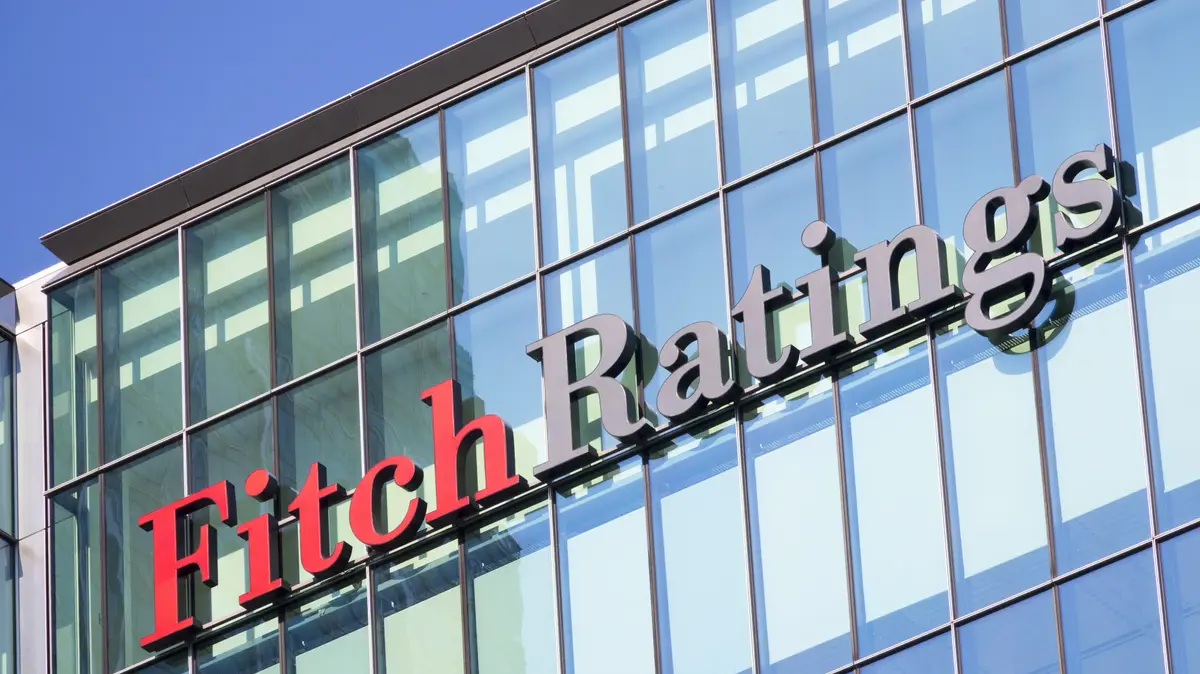news
News in Israel
Society and welfare
The pessimistic forecasts have been replaced by optimistic estimates: so the credit rating remains the same
S&P has decided to leave the credit rating unchanged, believing that the government will work next year to reduce the deficit and raise taxes, and that the agreements with the United Arab Emirates and Bahrain will also contribute to economic growth.
How will this affect the shekel, and is the company's forecast too ambitious?
Tags
Credit Rating
s & p
Sonia Gorodisky
Monday, 16 November 2020, 21:52
Share on Facebook
Share on WhatsApp
Share on general
Share on general
Share on Twitter
Share on Email
0 comments
Auditor's report on the corona crisis: various data on the situation ...
Suspected murder: 3 men were found without signs of life near a reserve ...
Hundreds demonstrate against violence against women across the country: ...
MK Haim Katz blew up the discussion of the Labor Committee without voting ...
Business owners burned goods in Rishon LeZion: "Do not want money, just ...
The head of the Yeruham Council closes two years in office: Contact me from all ...
"Return is a gamble": Half a million students return ...
Rivlin at the memorial service marking the 25th anniversary of Rabin's assassination: We must ...
Elections abstained: Knesset approves law rejecting approval ...
Dozens of self-employed people demonstrate demanding the opening of street shops ...
Grotto in the Education Committee: Expected to open the kindergartens on October 18, ...
The detention of Dmitry Tsignok, who is suspected of murdering his partner Anastasia ...
In the video: Shops closed in Tel Aviv following the Corona crisis (Photo: Reuters, Edited by Amit Simcha)
The international rating company S&P announced over the weekend that it had decided to leave Israel's credit rating unchanged, at the AA level, with a stable forecast for the future.
Despite the many pessimistic predictions made, especially in the economic press, the company expressed confidence in the country's debt repayment capacity and especially in its future economic policy.
This is despite the fact that the budget for next year will be presented to the government only during December, according to the optimistic forecast.
S&P is the second largest ranking company after Moody's.
Israel's current ratings according to Moody's and Fitch are lower than those of S&P, so the fact that the credit rating has not decreased is indeed a significant achievement.
More on Walla!
NEWS
Employment Crisis: The number of unemployed at the height of the second wave approached one million
The state and employers will bear the cost of isolating employees;
Independents outside the outline
Karnit Flug: "Another year without a budget - absurdity and serious failure"
Three packages that must be known for a fast, high-quality and reliable phone
Israel received a "gift."
Netanyahu and Katz at a cabinet meeting (Photo: Reuters)
Moody's has already confirmed Israel's credit rating, and the next company to announce Israel's credit rating is Fitch, with the financial markets expecting a change in Israel's credit rating in this case as well, because already, as mentioned, it is lower than that. Of S&P.
What is the impact of the decision on the credit rating on the economy?
The higher the country's rating, the lower the cost of raising debt to the state - that is: the interest that the state undertakes to pay on bonds (bonds) it issues. This is especially important in the current period, when Israel is required to issue bonds abroad in the tens of billions. shekels to finance spending on combating the crisis beams.
leaving restored credit rating can lead to the strengthening of the shekel - which could hurt exporters who struggle for a long time with a lower rate, although the Bank of Israel's intervention in the foreign exchange market occasionally.
More on Walla!
NEWS
Despite the economic and political crisis: Israel's credit rating remains the same
To the full article
"We were given a real economic gift, we have to take it and say thank you. It is doubtful that a government that has not been able to transfer a budget since 2018 will be able to decide on fiscal measures that S&P economists expect next year - raising taxes," said the chief economist.
He believes that S&P "missed" the rating forecast and should have been downgraded from "stable" to "negative".
What led to the decision?
Israel received the "gift" from S&P largely because the company's economists were convinced that the Israeli government would work to reduce the deficit as early as next year.
At the same time, the fact that Israel's economic situation is reasonable compared to some of the developed countries cannot be ignored.
Israel's debt repayment capacity, measured at the time the credit rating is given, is a result of economic conduct over the past few years.
Among other things, economists look at the debt-to-GDP ratio: when this ratio is relatively low, it allows the country to increase debt in times of crisis.
S&P also praised the Bank of Israel's effective and credible policy (Photo: Reuters)
In the last decade in Israel, the debt-to-GDP ratio has fallen from 74% to below 60% before the corona period.
Now, following the crisis, the debt rate is expected to rise back to 73% - by the end of the year, according to S & P's estimates.
However, compared to the developed world, Israel will still be in a "good middle" position, when, for example, this ratio in Germany is expected to reach 80%, in Canada to 110% and in the United States to 140%.
Were the company's estimates too optimistic?
S & P's estimates assume that this year's budget deficit will reach 12% of GDP - this is an optimistic estimate of all estimates recently made in the domestic market - both those of the Bank of Israel (13%) and those of the Ministry of Finance (13.4%), as well as most The financial entities in the economy, some of which even predict an increase to 15%.
In addition, the economists of the credit rating company estimate that the deficit will be reduced next year and will reach a level of 4% in the years 2022-2023, ie to the level before the corona crisis.
This estimate is based on the assumption that as early as the middle of next year the government will begin efforts to reduce the budget deficit, i.e .: increase taxes.
According to many political commentators, Israel is facing another political crisis that will lead it to elections next year, so it is to be assumed that raising taxes in mid-2021 is a fairly optimistic scenario.
The macroeconomic outlook is stable.
Shops in Allenby (Photo: Reuven Castro)
Modi Shafrir, chief strategist at Mizrahi Tefahot, explains in a conversation with Walla! NEWS that Israel's positive balance of payments (i.e .: the amount of money entering Israel, for example through exports and foreign investment, is greater than the outgoing - SG) helped to maintain Israel's credit rating intact. It should be noted that the current account surplus is not a new phenomenon. More than a decade.
"The credit rating company S&P usually emphasizes the balance of payments, and Israel's balance of payments is positive over the years, that is: we have a current account surplus, and this year we will have a larger surplus. In addition, despite the Corona period, the direct investment of foreign entities in the high-tech industry has increased significantly, "he said.
Shafrir explains this by combining low and even negative interest rates in the world and the boom in the high - tech sector in Israel unaffected by the Corona crisis." "They are managers, and the investment in Israeli high-tech that has increased in recent years will continue in this trend," he continued.
S&P also noted the effective and reliable policy of the Bank of Israel and the agreements with the United Arab Emirates and Bahrain, which should contribute to Israel's economic growth.
Share on Facebook
Share on WhatsApp
Share on general
Share on general
Share on Twitter
Share on Email
0 comments







/cloudfront-eu-central-1.images.arcpublishing.com/prisa/X33WQ3GSYFF3DBKJDAVIGHN3DA.jpg)







